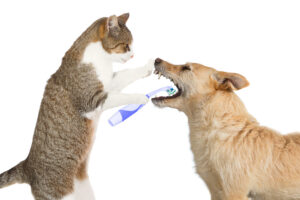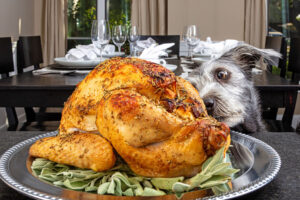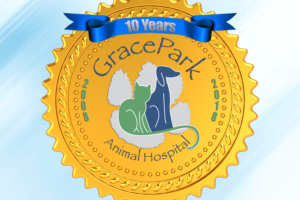Adding a new dog to your family is a very exciting time! There are so many different choices to be made – age, gender, size, and breed, to name a few. It is a great idea to think in advance about what type of dog would be a good fit, before meeting dogs that need a home, and getting swept up in the emotion of the moment.

Should I choose an adult dog?
- With an adult dog, you can clearly see the size and coat length, and the personality is mostly formed, so it is more clear what kind of pet you will be living with long term.
- Most adult dogs are housebroken, past the puppy teething/destruction phase, and often know basic obedience commands.
- Many young adults still have plenty of puppy pep and energy, without having to deal with the challenging adolescent puppy phase.
- Middle aged and senior pets are often calm, loving, low key additions to your household, and are grateful for a soft bed and a sunbeam to nap in.
Should I choose a puppy?
- Puppies have the advantage of being irresistably cute, with their wagging tails and wild licking tongues.
- Although their inherent personality is inborn, you can more effectively shape the behavior of puppies as compared to older dogs.
- They have to be housebroken, and taught basic manners and social skills. All puppies bite, chew up objects, have accidents in the house, and jump up on people, until they are taught better.
- It takes approximately 2 years for puppies to mature into calmer, more well behaved adult dogs. Small children in particular are often targets of puppy exuberance and biting/scratching.
- With a mixed breed or cross breed puppy, adult size and coat length are often only guesses, and can vary widely from original estimates.
What breed or mix of breeds?
- Humans domesticated wolves and selectively bred them into a wide variety of breeds, from 2 pound Chihuahuas to 200 pound Mastiffs.
- Their coats vary from almost non-existent to very thick, from very short to extremely long, from curly to straight, and from cottony soft to very wiry.
- No dog is truly “hypoallergenic”, and all dogs shed to some extent. Poodles, poodle mixes, and many terriers shed minimally, while our double coated arctic breeds shed profusely in the fall and spring. Any dog that does not shed much will require daily brushing and monthly grooming to avoid extreme matting.
- All dogs are individuals, and there are certainly outliers, but breeds were developed over hundreds to thousands of generations for different uses, and those behavioral tendencies are fairly predictable.
- Herding dogs were selectively bred for their ability to herd livestock by circling, barking, and nipping at their heels, and so dogs of these breeds tend to be very energetic, lively, and excited by movement. They are best suited for very active households, without young children.
- Hounds were selectively bred to have an amazing sense of smell, and tend to focus strongly on following tracks on the ground. Many of them are very mellow, but their nose often leads them to raiding pantries and trash cans.
- Protection dogs and livestock guardian dogs were bred to guard the family, and tend to be very loving and loyal towards members of their family, but suspicious of strangers.
- Retrievers were bred to be friendly and outgoing so they can hunt with a variety of different people, and they tend to enjoy “retrieving” (and eating) a variety of objects, such as shoes, socks, and wallets. They require a lot of exercise when young.
- Terriers were bred to dig holes to drive out vermin, and they tend to enjoy chasing squirrels and digging in flower beds looking for voles. They often have delightfully spunky personalities, and a lot of energy for their size.
- Sporting breeds, such as poodles and doodles, tend to be very intelligent, high energy dogs that require a commitment to plenty of exercise and mental stimulation.

Where can I adopt a dog?
- There are many reputable rescues in the area, that have sweet, well-mannered pups for adoption. Rescues that house their pets in a foster home can give you valuable information about household manners and habits.
- Our local shelters are also full of dogs of all sorts, both mixed breeds and purebreeds. Adopting from them saves a life!
- Visit our Community Involvement page for some local rescues.
Where can I buy a puppy?
- Do not purchase a puppy off the internet sight unseen – many scams abound!
- We strongly encourage you to meet the breeder and the parent dogs, and see where the puppy is born and raised, to ensure they have been well cared for and shown love and attention. Early neglect often results in fearful, anxious puppies.
- We strongly discourage you from purchasing pets from pet stores, online pet stores, or online puppy brokers as most of those puppies are raised by large, commercial breeders that do not perform health testing on the parents and do not socialize the puppies in their care. Many of those puppies spend their entire lives in a cage, and since they are forced to potty where they sleep, they can be very challenging to housebreak.
How do I tell if a puppy breeder is reputable?
- Good breeders will invite you to meet the parents, and to tour the facility where your puppy is raised.
- Good breeders have a limited number of litters each year, so that they can adequately socialize and care for the puppies, to prepare them for family life. They can articulate a clear reason why their dogs are of a quality to be bred, and can explain how they raise their puppies.
- Good breeders have 1 or 2 breeds that they specialize in, allowing them to clearly understand their chosen breed’s genetics, pedigree, health issues, etc.
- Good breeders do health testing on their parents, to maximize the chance of a healthy puppy. The type of screening depends on the exact breed, but typically includes genetic screening for inherited diseases, screening for hip dysplasia in larger dogs, eye screening, and screening for inbreeding by analysis of pedigrees.
- Good breeders are particular about where their puppies are placed, and will interview potential owners regarding their goals, home situation, and reasons for wanting this particular breed, to make sure this will be a good match.
- Good breeders almost always have a wait list for their puppies. It is frustrating to have to wait for a puppy, but it means that they are selling a quality, desired product.

What are red flags to watch for with a breeder?
- The breeder won’t let you visit their facility, and insists on either shipping the dog, or meeting you in a parking lot. Never buy a puppy from someone that won’t let you meet the mother and see where and how the puppy was raised.
- The breeder hasn’t done any medical testing on the parents.
- The breeder doesn’t ask you any questions, or has a “buy now” button on their website.
- The breeder constantly has puppies available.
If you have any specific questions regarding dog or puppy selection, please call and speak to us. We would be happy to discuss your particular situation, to help ensure a great fit between you and your new family member.
Summary:
- Consider an adult dog that needs a home, and save a life.
- Never buy a puppy online or sight unseen. Scams abound! Insist on meeting the puppy, the mother, and the breeder in person.
- Consider what breed fits your lifestyle, rather than what breed is cute or popular.






